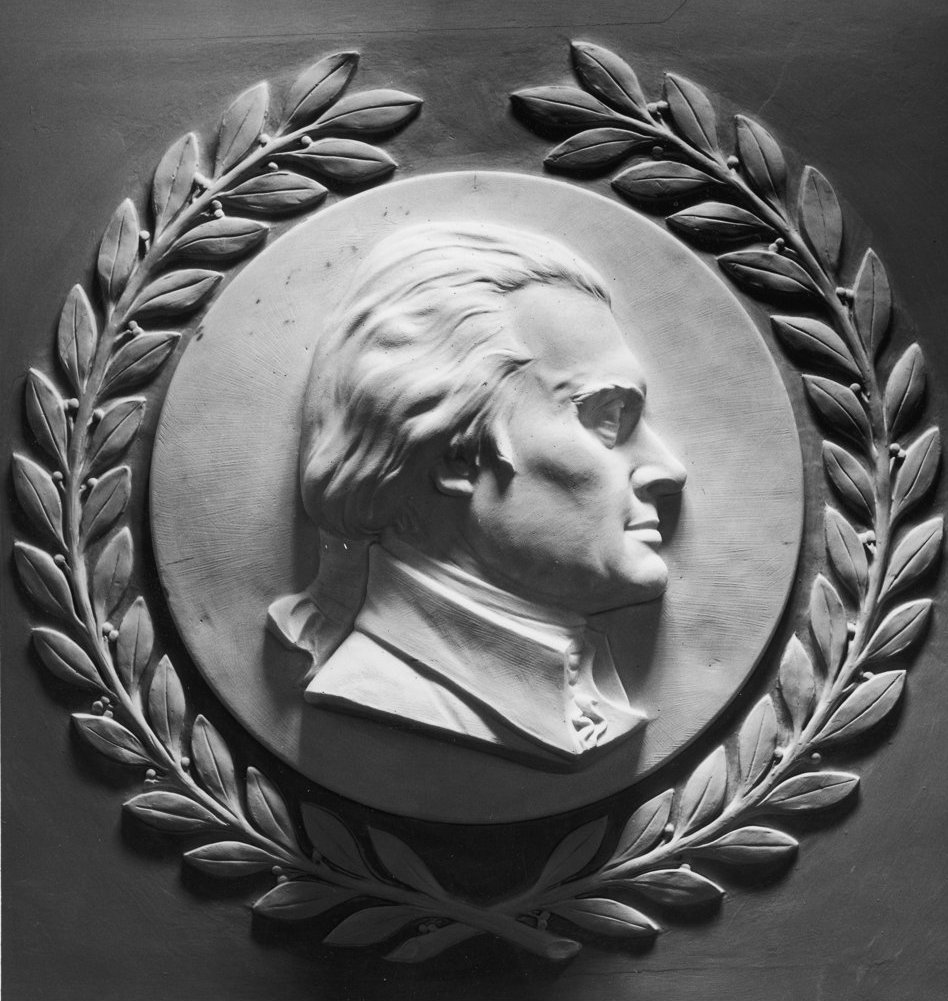Excerpt: “Justice Will Not Sleep”
Instrumentation: Narrator, 2 Fl (db picc), 2 ob (db Eng Hn), 2 cl, 2 bsn, 2 hrn, 2 trpts, 2 trb, tba, timp, 2 perc, strings
Duration: 25:00
Commission: Charlottesville & University Symphony; Illinois Symphony; Richmond Symphony; Virginia Symphony
Premiere: 3/12/10
Karen Deal, Conductor
Bill Kurtis, Narrator
The Illinois Symphony
Bloomington Center for the Performing Arts
Bloomington, IL
Please contact asst@judithshatin.com for rental information.
Program Note:
Jefferson, In His Own Words is scored for narrator and orchestra. Based entirely on Jefferson’s letters and Farmbook, it gives an intimate view of Jefferson, including both his strengths and foibles as a public servant and private person. He was a complex person who believed strongly in freedom of religion and the separation of church and state; he sometimes called for abolition, yet he was a slave owner; he struggled with the pulls between reason and desire; he founded a university built around a library instead of a church. Throughout his life, Jefferson maintained a daily practice of correspondence with an enormous variety of people – from a carpenter to heads of state; from his granddaughter to John Adams. He wrote on subjects as mundane as the purchase of seeds and shoes, and as telling as religious freedom and the national debt.
The narrative unfolds in four movements, each focusing on different aspects of Jefferson’s life: 1. Political Passions 2. Head and Heart 3. Justice Will Not Sleep 4. The Freedom of Reason. I fashioned the narrative in consultation with noted poet Barbara Goldberg. Jefferson was himself an accomplished musician, and my music includes references to Corelli’s La Folia and to the Broom of the Cowdenknowes, a Scottish air. Both were favorites of Jefferson. In addition, I have included a recasting of a phrase from the spiritual We Will March Through the Valley in the third movement. Jefferson, In His Own Words, is a co-commission of the Charlottesville and University Symphony Orchestra and the Illinois, Richmond, and Virginia Symphonies. It is dedicated to Mr. Gerald Morgan, a dear friend, a staunch supporter of music, both new and traditional, and a Jefferson descendant.
I would like to thank Lucia Stanton, Shannon Senior Historian at Monticello; Jack Robertson, Foundation Librarian at the Jefferson Library; Peter Onuf, UVA Professor of History; Erin Mayhood, UVA Music Librarian; and the University of Virginia Rare Books Collection for their research assistance.–JS
Press Quotes:
“Judith Shatin’s Jefferson in His Own Words gives American orchestras a rare opportunity–the chance to represent real-world issues, in a meaningful way, in a symphonic context. She has selected some of the most powerful and poignant texts to come from Jefferson’s pen, arranged them so that a non-musician may serve as narrator, and accompanied them in a way our audiences found spellbinding.” –Benjamin Rous, Conductor of the Virginia Symphony
“Judith Shatin’s Jefferson, In His Own Words is a powerful piece that riveted our 5000 concertgoers during our July 4th program. The music dramatizes and highlights Jefferson’s thoughts in beautiful and exciting fashion. Some of the texts that Shatin’s work highlights also give evidence of some of Jefferson’s complex personal issues such as his championing freedom while being a slave owner himself. This makes the piece a more realistic portrait of this seminal American thinker.” –Jeffrey Silberschlag, Conductor of the Chesapeake Orchestra
“Shatin’s large-scale, impressionistically colorful orchestration evokes misty Blue Ridge vistas in its quieter and more contemplative moments, but more often enlarges, with some turbulence, on the text’s suggestions of Jefferson’s inner emotional life. The portrait that Shatin paints is far from the usual picture of an enigmatic and cerebral man. This performance by conductor Steven Smith and the Richmond Symphony played up the color and drama of Shatin’s score.” –Virginia Classical Blog

